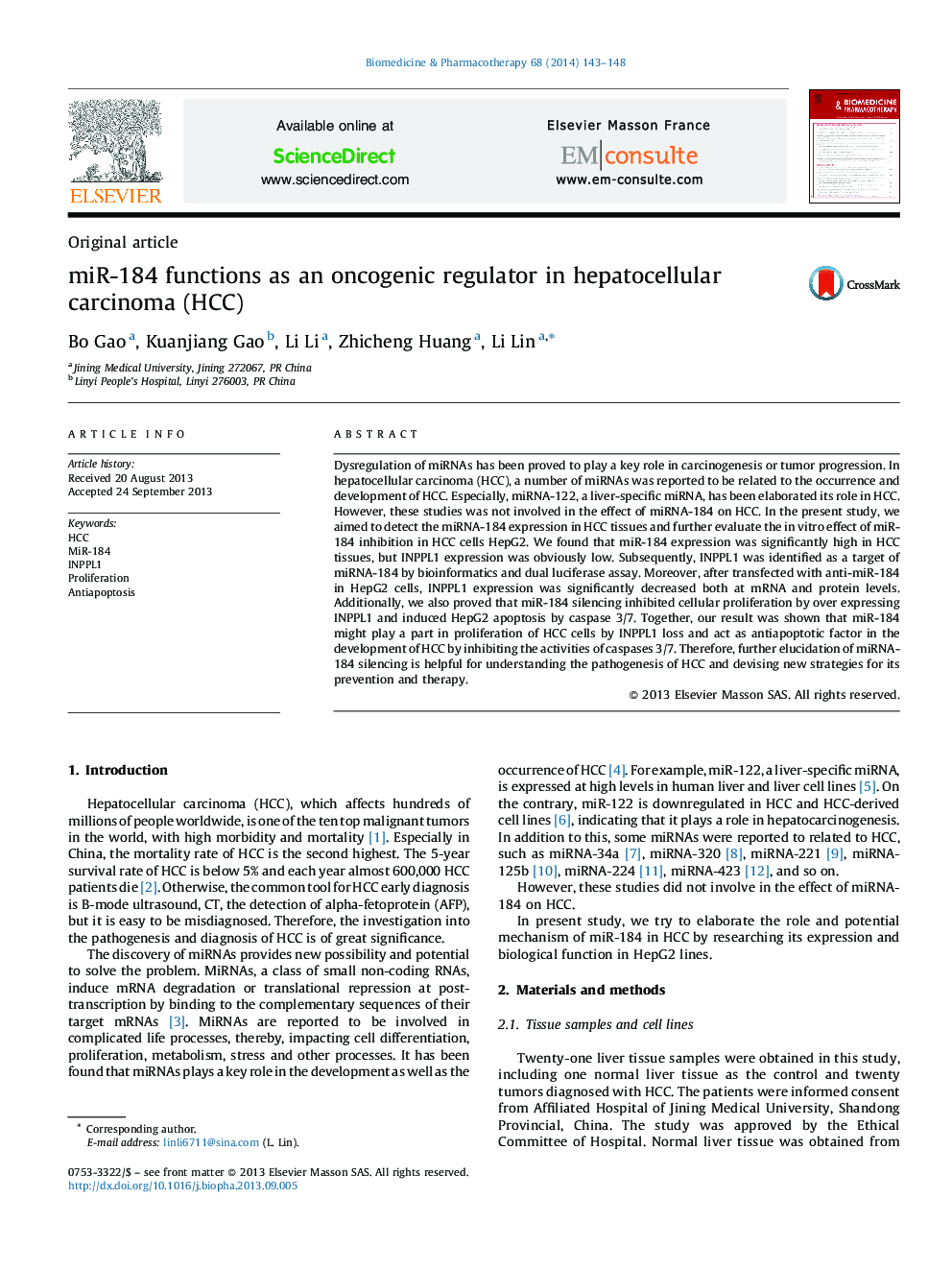| Article ID | Journal | Published Year | Pages | File Type |
|---|---|---|---|---|
| 2525039 | Biomedicine & Pharmacotherapy | 2014 | 6 Pages |
Dysregulation of miRNAs has been proved to play a key role in carcinogenesis or tumor progression. In hepatocellular carcinoma (HCC), a number of miRNAs was reported to be related to the occurrence and development of HCC. Especially, miRNA-122, a liver-specific miRNA, has been elaborated its role in HCC. However, these studies was not involved in the effect of miRNA-184 on HCC. In the present study, we aimed to detect the miRNA-184 expression in HCC tissues and further evaluate the in vitro effect of miR-184 inhibition in HCC cells HepG2. We found that miR-184 expression was significantly high in HCC tissues, but INPPL1 expression was obviously low. Subsequently, INPPL1 was identified as a target of miRNA-184 by bioinformatics and dual luciferase assay. Moreover, after transfected with anti-miR-184 in HepG2 cells, INPPL1 expression was significantly decreased both at mRNA and protein levels. Additionally, we also proved that miR-184 silencing inhibited cellular proliferation by over expressing INPPL1 and induced HepG2 apoptosis by caspase 3/7. Together, our result was shown that miR-184 might play a part in proliferation of HCC cells by INPPL1 loss and act as antiapoptotic factor in the development of HCC by inhibiting the activities of caspases 3/7. Therefore, further elucidation of miRNA-184 silencing is helpful for understanding the pathogenesis of HCC and devising new strategies for its prevention and therapy.
